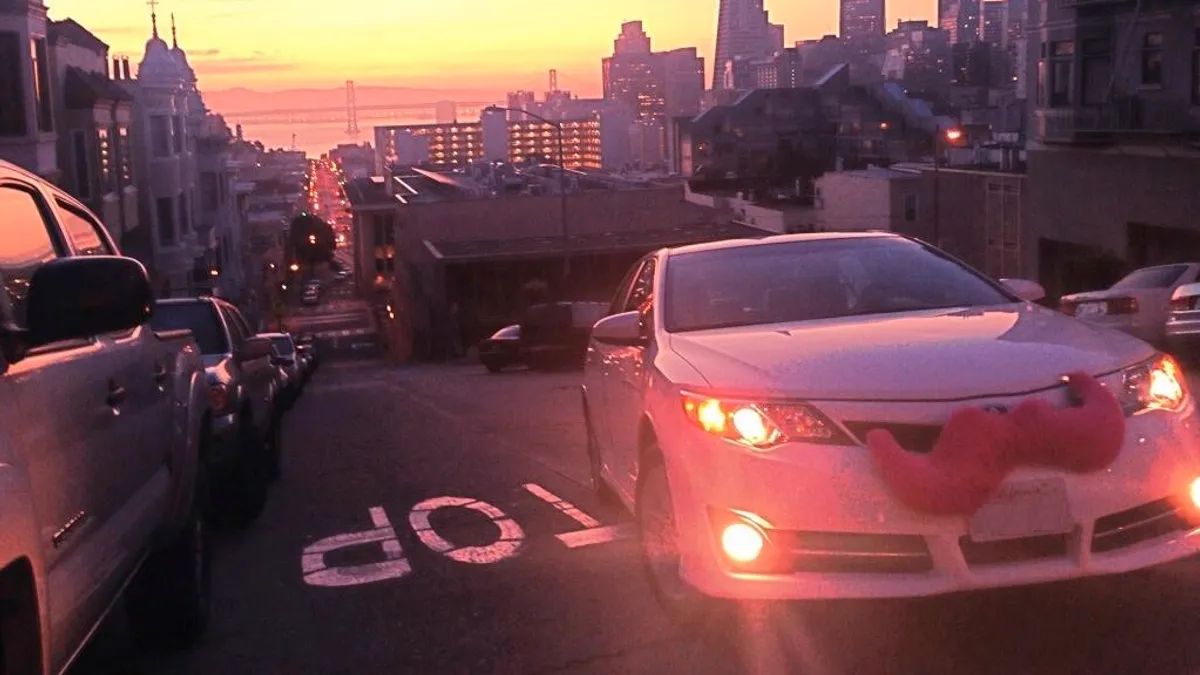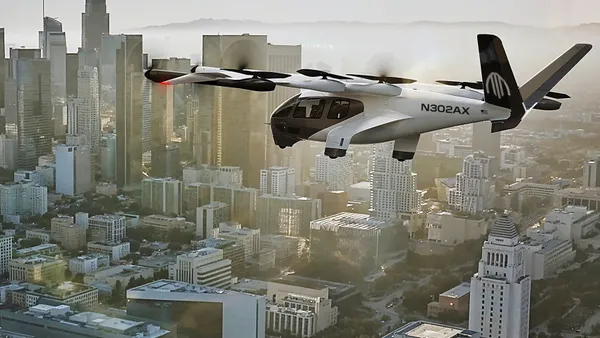Dive Brief:
- Trips on ride-hailing services like Uber and Lyft produce nearly 70% more emissions than the transportation options they replace, according to a new report from the Union of Concerned Scientists (UCS). Bringing those emissions down, the report says, will require more pooled rides, electrification of the fleet and expanded partnerships with transit agencies.
- Although an Uber or Lyft trip can be more efficient than one in a single-occupancy vehicle, there are significant emissions from "deadheading," or the time between rides when a driver is waiting for a passenger. The UCS report cites a previous analysis from consulting group Fehr & Peers that found around 40% of ride-hailing miles are traveled when a driver does not have a passenger in the car. UCS found ride-hailing trips are only pooled an estimated 15% of the time, and those non-pooled trips produce 47% more emissions than a trip in a private vehicle.
- Converting trips to pooled rides in electric vehicles could significantly cut the climate impact; an electric, pooled ride-hailing trip can cut emissions by about 68% compared to a typical private car trip.
Dive Insight:
Amid concerns about their climate impact or contribution to congestion in cities, Lyft and Uber have both stepped up efforts to be cleaner. Lyft has committed to carbon neutrality and launched a "Green Mode" last year so passengers can request an EV or hybrid vehicle. Uber, meanwhile, has partnered with EVGo to put more EVs on its platform and offers incentives to drivers that use cleaner vehicles.
Both companies are working to put more people in shared rides, and have partnered with local transit agencies to put directions in their apps and even offer in-app ticket purchases in some cities.
In a statement, a Lyft spokeswoman said the report "makes misleading claims about rideshare" and said Lyft is "eager to continue this work in partnership with cities, to advance shared, sustainable transportation." The company added that ride-hailing is displacing mostly single-person trips, which are the least efficient form of travel, and said the report "simplifies" the issue by not considering how ride-hailing companies have absorbed personal vehicle miles traveled.
In a statement, Uber said it will "continue to invest in products and advocate for policies that reduce car ownership, promote more pooled trips and support greater adoption of bikes, scooters, green vehicles and the use of public transit."
Jeremy Martin, a senior scientist at UCS and co-author of the report, said in an interview that the companies’ efforts will help, but there will need to be more work from governments to put incentives, or taxes, in place that push riders into more efficient trips. For example, Martin pointed to Chicago’s tiered ride-hailing fees, which reduce fees for shared trips (the funds will go, in part, to transit improvements).
"There are places where companies provide a useful and convenient service and can facilitate people having flexible transportation options that include walking, biking, transit and ride-hailing trips," Martin said. "We’re trying to look at this in a constructive way and work with policymakers and the public to target those services and mitigate the problems."











